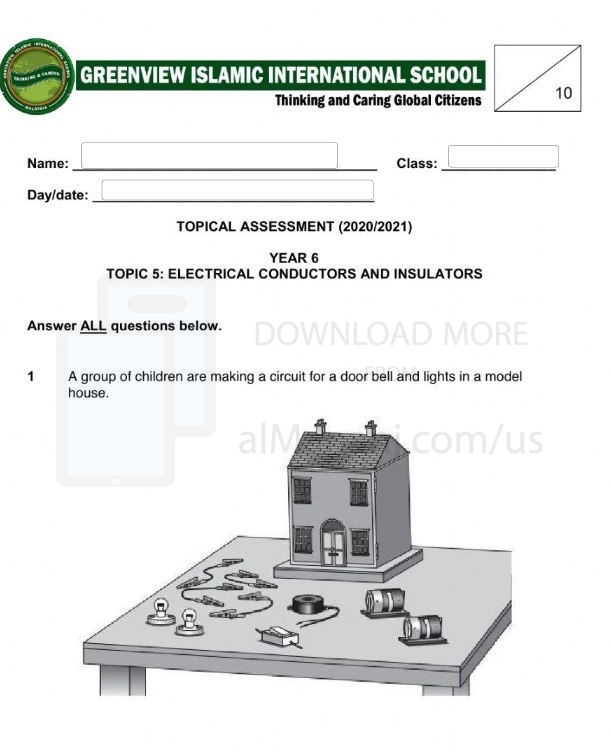File info: The Science Exam for Grade 6 is a comprehensive assessment that evaluates students' understanding of various scientific concepts. The exam is designed to measure their knowledge and proficiency in different areas of science. Here is a description of what the exam typically entails:
1. Biology: This section focuses on topics related to living organisms. Students may be tested on their understanding of the human body, including the major organs and their functions, the skeletal and muscular systems, and the different body systems like the respiratory and circulatory systems. They may also be asked about plant and animal classification, basic ecological concepts, and adaptations.
2. Chemistry: The chemistry portion of the exam covers fundamental concepts of matter and its properties. Students might be required to demonstrate their knowledge of elements, compounds, and mixtures. They may also be asked to identify common elements, understand the periodic table, and explain basic chemical reactions.
3. Physics: This section assesses students' understanding of basic physics principles. Topics covered may include forces, motion, energy, and simple machines. Students might be asked to solve problems related to speed, distance, or time. They may also need to demonstrate their understanding of the laws of motion and the effects of forces on objects.
4. Earth Science: The Earth Science portion of the exam focuses on topics related to the Earth and its processes. Students may be tested on their knowledge of the Earth's layers, plate tectonics, weathering and erosion, the water cycle, and natural resources. They may also be asked to identify different types of rocks and minerals or explain weather patterns and their causes.
5. Astronomy: This section covers topics related to space and the universe. Students may be asked about the solar system, including the planets, moons, and the sun. They may also need to demonstrate their understanding of stars, galaxies, and the phases of the moon. Additionally, questions related to astronomical phenomena such as eclipses, seasons, and the motion of celestial bodies might be included.
The Science Exam for Grade 6 usually consists of a combination of multiple-choice questions, short-answer questions, and possibly some practical or hands-on tasks. The exam aims to assess students' knowledge, critical thinking skills, problem-solving abilities, and their ability to apply scientific concepts to real-life situations. |
